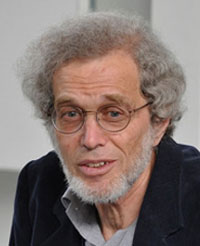By Lawrence S. Wittner
If one examines Donald Trump’s approach to world affairs since his entry into American politics, it should come as no surprise that he has worked to undermine the United Nations.
The United Nation is based on international cooperation, as well as on what the UN Charter calls “the equal rights . . . of nations large and small.” It seeks to end “the scourge of war” and to “promote social progress” for the people of the world.
By contrast, Trump has advocated a nationalist path for the United States. Campaigning for the presidency in 2016, he proclaimed that “America First” would “be the major and overriding theme of my administration.” In his 2017 inaugural address, he promised: “From this day forward, it’s going to be only America first.”
Indeed, “America First” became his rallying cry as he championed an unusually aggressive nationalism. “You know what I am?” Trump asked a crowd in Houston. “I’m a nationalist, O.K.? I’m a nationalist. Nationalist!” Sometimes, his displays of superpatriotism―which appealed strongly to rightwing audiences―included hugging and kissing the American flag.
Given this nationalist orientation, Trump turned during his first administration to dismantling key institutions of the United Nations and of the broader system of international law. He withdrew the U.S. government from the Paris Climate Agreement, the World Health Organization, the UN Human Rights Council, and the UN Educational, Scientific, and Cultural Organization (UNESCO). He also had the U.S. government vote against the Global Compact on Refugees, suspend funding for the UN Population Fund and the UN Relief and Works Agency for Palestine Refugees, and impose sanctions on a key international agency, the International Criminal Court, which investigates and prosecutes perpetrators of genocide, war crimes, crimes against humanity, and the crime of aggression.
Nevertheless, many of these Trump measures were reversed under the subsequent presidency of Joseph Biden, which saw the U.S. government rejoin and bolster most of the international organizations attacked by his predecessor.
With Trump’s 2020 election to a second term, however, the U.S. government’s nationalist onslaught resumed. In January 2025, U.S. Representative Elise Stefanik (R-NY), testifying at a Senate Foreign Relations Committee hearing on her nomination to become U.S. ambassador to the United Nations, assailed the world organization, and promised to use her new post to promote Trump’s “America First” agenda. “Our tax dollars,” she argued, “should not be complicit in propping up entities that are counter to American interests.” Joining the attack, Senator Jim Risch (R-Idaho), the committee chair, sharply criticized the United Nations and called for a reevaluation of every UN agency to determine if its actions benefited the United States. If they didn’t, he said, “hold them accountable until the answer is a resounding yes.” He added that “the U.S. should seriously examine if further contributions and, indeed, participation in the UN is even beneficial to the American people.”
Simultaneously, a new Trump administration steamroller began advancing upon UN entities and other international institutions viewed as out of line with his “America First” priorities. At his direction, the U.S. government withdrew from the World Health Organization and the UN Human Rights Council, refused to participate in the UN Relief and Works Agency, announced plans to withdraw from UNESCO, and imposed new sanctions on the International Criminal Court. In the UN Security Council, the U.S. government employed its veto power to block a June 2025 resolution demanding a permanent ceasefire in Gaza and release of all hostages―a measure supported by the 14 other members of that UN entity.
The Trump administration has also worked to cripple the United Nations by reducing its very meager income. In July 2025, rescissions legislation sponsored by the administration and passed by the Republican-controlled Congress pulled back some $1 billion in funding that U.S. legislation had allocated to the world organization in previous budgets. This action will have devastating effects on a broad variety of UN programs, including UNICEF, the UN Development Program, the UN Environment Program, the UN Office for the Coordination of Humanitarian Affairs, and the UN Fund for Victims of Torture.
Moreover, the administration’s fiscal 2026 budget proposes ending UN Peacekeeping payments and pausing most other contributions to the United Nations. Although U.S. funding of the United Nations is actually quite minimal―for example, dues of only $820 million per year for the regular UN budget―the U.S. government has now compiled a debt of $1.5 billion (the highest debt of any nation) to the regular budget and another $1.3 billion to the separate UN Peacekeeping budget.
The Trump administration’s hostility to the United Nations is sharply at odds with the American public’s attitude toward the world organization. For example, a Pew Research Center poll in late March 2025 found that 63 percent of U.S. respondents said that their country benefited from UN membership―up 3 percent from the previous spring. And 57 percent of Americans polled had a favorable view of the United Nations―up 5 percent since 2024.
Furthermore, a University of Maryland public opinion survey in June 2025 found that 84 percent of Americans it polled wanted the U.S. government to work with the United Nations at current levels or more. This included 83 percent supporting UNICEF, 81 percent UN Peacekeeping, 81 percent the UN World Food Program, 79 percent the World Health Organization, and 73 percent the UN Environment Program.
Nor was this strong backing for a global approach to global affairs a fluke. Even when it came to the International Criminal Court, an independent international entity that the U.S. government had never joined and that Trump had roundly denounced and twice ordered sanctioned, 62 percent of Americans surveyed expressed their approval of the organization.
Trump’s “America First” approach can certainly stir up his hardcore followers. But most Americans recognize that life in the modern world requires moving beyond a narrow nationalism.
Dr. Lawrence Wittner, syndicated by PeaceVoice, is Professor of History emeritus at SUNY/Albany and the author of Confronting the Bomb (Stanford Universit

